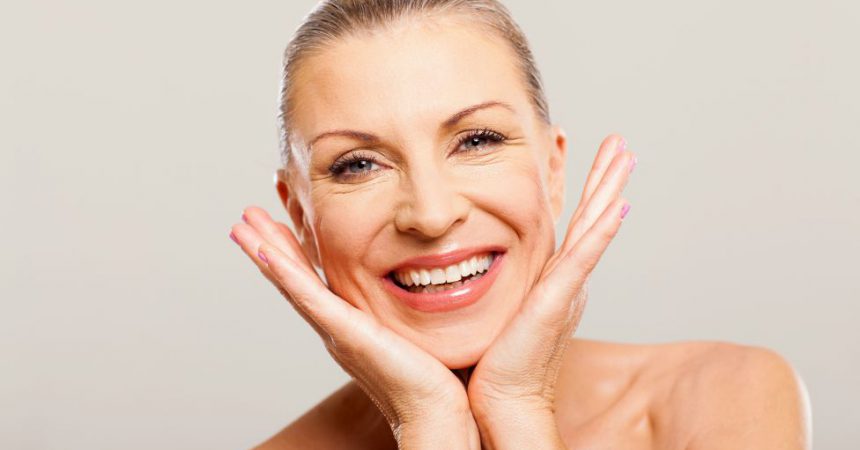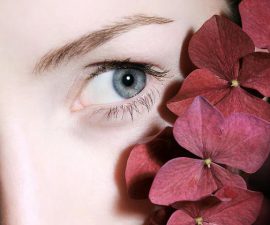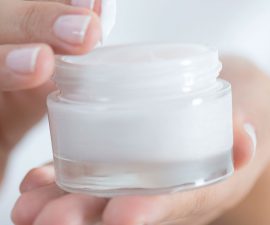The combination of natural ingredients and advanced technologies is the best you can give to an ageing skin. How to find the perfect cream for mature skin?
The maturity of the complexion is its condition, which depends primarily on age, but also on current methods of care. It is known that the better maintained the skin, the fewer skin problems in the future. Nevertheless, even with the best care, we will not avoid wrinkles, discolouration and dehydration. The skin loses its elasticity with age, it becomes dry and chapped – we cannot avoid it, but we can delay it!
The best way is to use the right cosmetics. A good cream for mature skin is not just an anti-wrinkle cream. It must help overcome various skin problems and comprehensively respond to its needs. How to find the perfect face cream? You need to look for the right ingredients in it. Below, you will find the most popular ones.
INGREDIENTS OF A CREAM FOR MATURE SKIN CARE
Mature skin loves vitamins and minerals that are missing in our body over the years. Retinol, coenzyme Q10, hyaluronic acid, urea, peptides, ascorbic acid, and even stem cells will be an excellent choice. Each of these ingredients has properties that help take care of mature skin comprehensively.
How do they work?
• Retinol is one of the forms of vitamin A. It is one of the few vitamins that the rejuvenating effect has been confirmed in scientific research. We can trust this component if we want to restore our skin’s elasticity and youthful glow. Retinol supports the production of collagen and elastin, thanks to which the skin regains its firmness. What’s more, it balances the work of sebaceous glands and has antioxidant properties. Regular use of retinol can lead to exfoliation of the skin, making it smoother and more radiant.
• Hyaluronic acid is an ingredient that naturally occurs in our body. It can collect water in the skin, thanks to which it ensures its proper hydration. With the age of this ‘magnet to water’, our body contains less and less water, which is why mature skin is drier. It is worth looking for hyaluronic acid as the main moisturizing ingredient in creams.
• Vitamin C, or ascorbic acid, is an excellent remedy not only for a cold. It strengthens the body’s immunity but also slows down the ageing processes occurring in our skin. The cream for mature skin with a high concentration of vitamin C makes small wrinkles disappear, reduce discolouration, decrease the tendency to broken capillaries and improves the overall appearance of the skin.
• Peptides (such as arginine) are synthetic substances whose common feature is very small particle size. This allows them to penetrate even the farthest corners of our skin and to transport valuable nutrients there. A face cream with peptides can act like botox and reduce mimic wrinkles.
• Coenzyme Q10 is most often found in creams for mature skin. Why? It is a substance that is present in every cell and is responsible for regeneration. If Q10 coenzyme runs out, the skin loses its firmness. It is worth providing it through cosmetics because it is a very strong antioxidant. In combination with vitamin E, it inhibits the formation of free radicals and protects against harmful UV radiation.
• Stem cells are contained in only a few cosmetics for mature skin. It is a pity because an inconspicuous stem cell can undergo a real metamorphosis and turn into any type of cell. If we lack some cells in the skin, thanks to this component we will be able to regain them. Wrinkles are the result of defects in the collagen and elastin fibre mesh that form the frame for our face and are responsible for skin elasticity. When they are missing, they can be replaced with stem cells. It’s a magic ingredient.
• Phytohormones are a very interesting proposition for mature skin. They are obtained from sunflower seeds, wild rice or soy. To put it simply, these are plant hormones whose action is the same as our hormones. Unfortunately, with age, we lack hormones responsible for protection, blood supply, nutrition, elasticity and youthfulness of the skin, these plants can effectively replace them.
• Folic acid (vitamin B9) is an ingredient that will be useful not only for pregnant women. With age, the regenerative potential of the skin decreases and it needs support. Folate not only accelerates regeneration and supports cell renewal, but also protects against harmful UV radiation, preventing the so-called photoaging of the skin.
• Vitamin E, although mentioned at the very end of this list, it is a very important and most often appearing ingredient in face creams. It is sometimes called the vitamin of youth because it has very strong antioxidant qualities. Creams for mature skin with vitamin E delay skin ageing, nourish, regenerate and control the level of hydration.




Leave a Reply